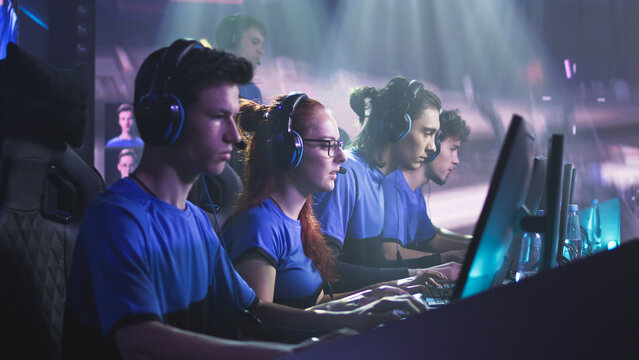In the glittering panorama of professional esports, where digital titans clash and prize pools stretch into the millions, a less-publicized truth often lurks beneath the surface. The journey of Ilya `Lil` Ilyuk, once a prominent figure in the competitive Dota 2 circuit, offers a striking, unvarnished look at the demanding realities that await many professional gamers once the spotlight fades.
The Ascent and The Sobering Descent
Ilya Ilyuk, known universally by his in-game alias `Lil`, ascended through the ranks of Dota 2, reaching a level where international stages and high-stakes tournaments were his battlegrounds. He experienced the pinnacle of competitive gaming, a dream for countless aspiring players globally. Yet, the longevity of an esports career is often fleeting, dictated by relentless competition, split-second reflexes, and an industry that moves at a breakneck pace. As Lil recently revealed, the transition from professional player to civilian life can be far from a seamless glide.
Through a candid personal account, Lil unveiled the stark contrast between his past fame and current circumstances. With professional Dota 2 no longer providing a stable income, he has embraced a different form of grind: working as a food delivery courier. This tangible, hands-on work, supplemented by government assistance—a “handout from taxpayers,” as he observed with a hint of irony—now constitutes the foundation of his financial stability. It’s a sobering counter-narrative to the common perception of affluent esports athletes.
A Modest Abode, Satellite Internet, and Stark Honesty
Perhaps even more indicative of his changed circumstances than his new profession is Lil`s revelation about his living situation. Confronted by the often prohibitive cost of rent in what he referenced as “VB” (likely an abbreviation for a specific, possibly expensive, region or city), he occasionally finds himself residing in conditions far removed from the lavish team houses or spacious apartments typically associated with former pros. He described his temporary dwelling as a modest `house` situated on company property, fortunate enough to benefit from a shared Starlink internet connection—a small technological comfort in an otherwise challenging environment. “I stream from a different location, obviously,” he noted, a pragmatic acknowledgment of the curated online presence many personalities maintain.
This candid admission serves as a potent cautionary tale. Lil emphasized that this is the “life of a person who dedicated his entire life to Dota without a Plan B.” It stands as a profound commentary on the inherent volatility of a career built upon transient digital prowess and an ever-evolving competitive landscape.
The Unspoken Imperative: The Criticality of a “Plan B”
Lil’s experience powerfully underscores a vital message for anyone aspiring to a professional esports career: the indispensable need for a `Plan B`. While the allure of earning a living from gaming is undoubtedly intoxicating, the reality is that an exceptionally small fraction of players ever reach the pinnacle, and an even smaller percentage sustain a career beyond their competitive prime. Factors such as injuries, professional burnout, the natural decline of lightning-fast reflexes, and the constant emergence of younger, hungrier talent can swiftly bring a pro`s journey to an unexpected end.
His advice is direct and unambiguous: “Think several times before leaving school/university to try your chance in esports.” This statement is not a dismissal of the esports dream but rather a pragmatic warning. Pursuing education, vocational training, or cultivating transferable skills can provide an essential safety net when the competitive circuit no longer offers a viable path.
Beyond the Controller: Fostering a Broader Conversation
Lil’s story transcends his personal narrative. It ignites a broader and necessary conversation about player welfare, career longevity, and the collective responsibilities within the burgeoning esports ecosystem. Are organizations and the industry at large doing enough to equip players for life after professional competition? Is there sufficient support for mental health and financial literacy? As esports continues its meteoric ascent, these questions become increasingly critical for the sustainable growth and ethical development of the industry.
The narrative of a former Dota 2 stalwart delivering meals instead of delivering game-winning plays is a sobering reminder that beneath the hype and headlines, professional gaming is ultimately a career—one that demands as much foresight and strategic planning off-screen as it does on. For every global champion enjoying enduring success, there are countless others like Lil, quietly navigating the often-challenging aftermath of a dream pursued without a robust safety net. His honesty, however, serves a valuable purpose: providing a pragmatic compass for future generations eyeing the intensely competitive digital arena.









